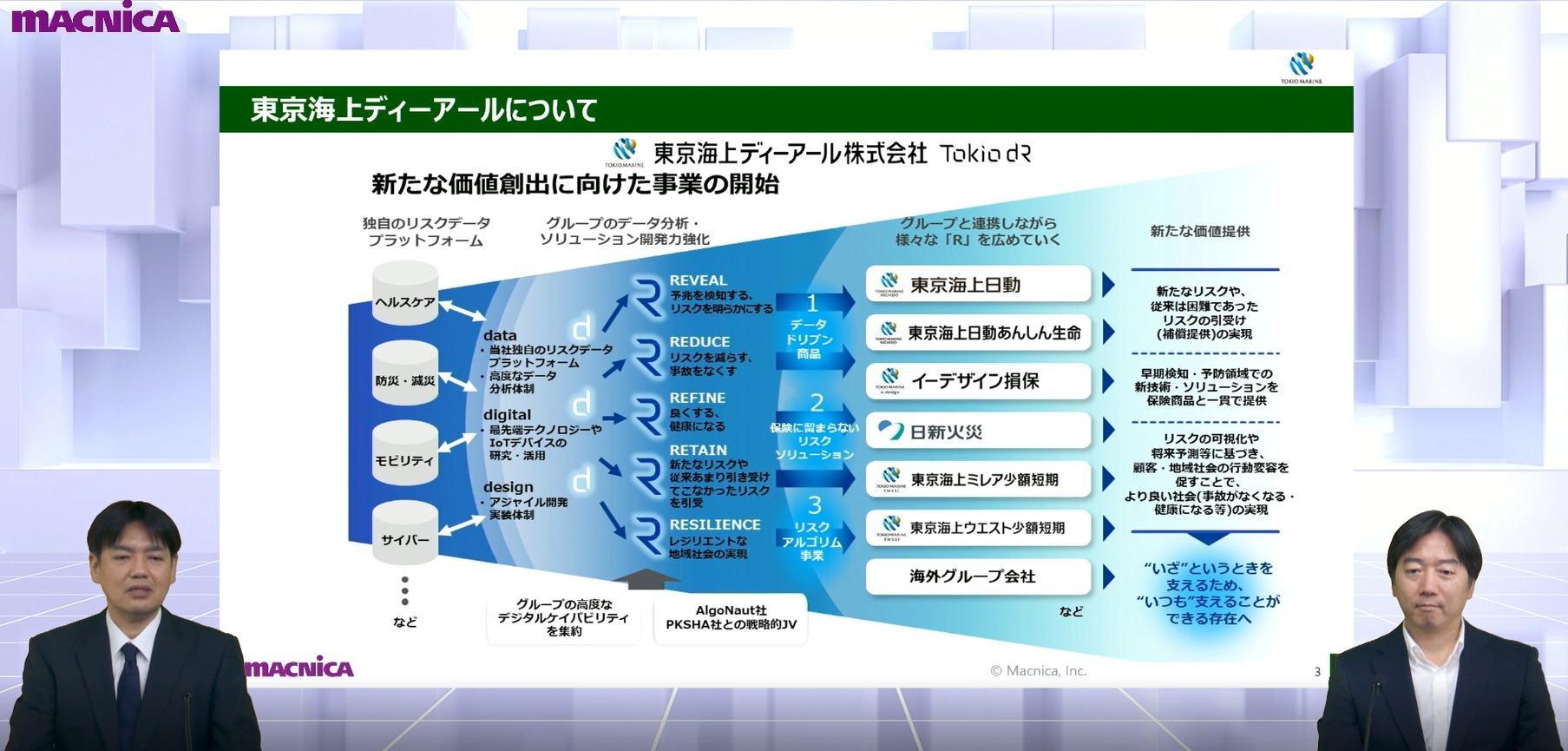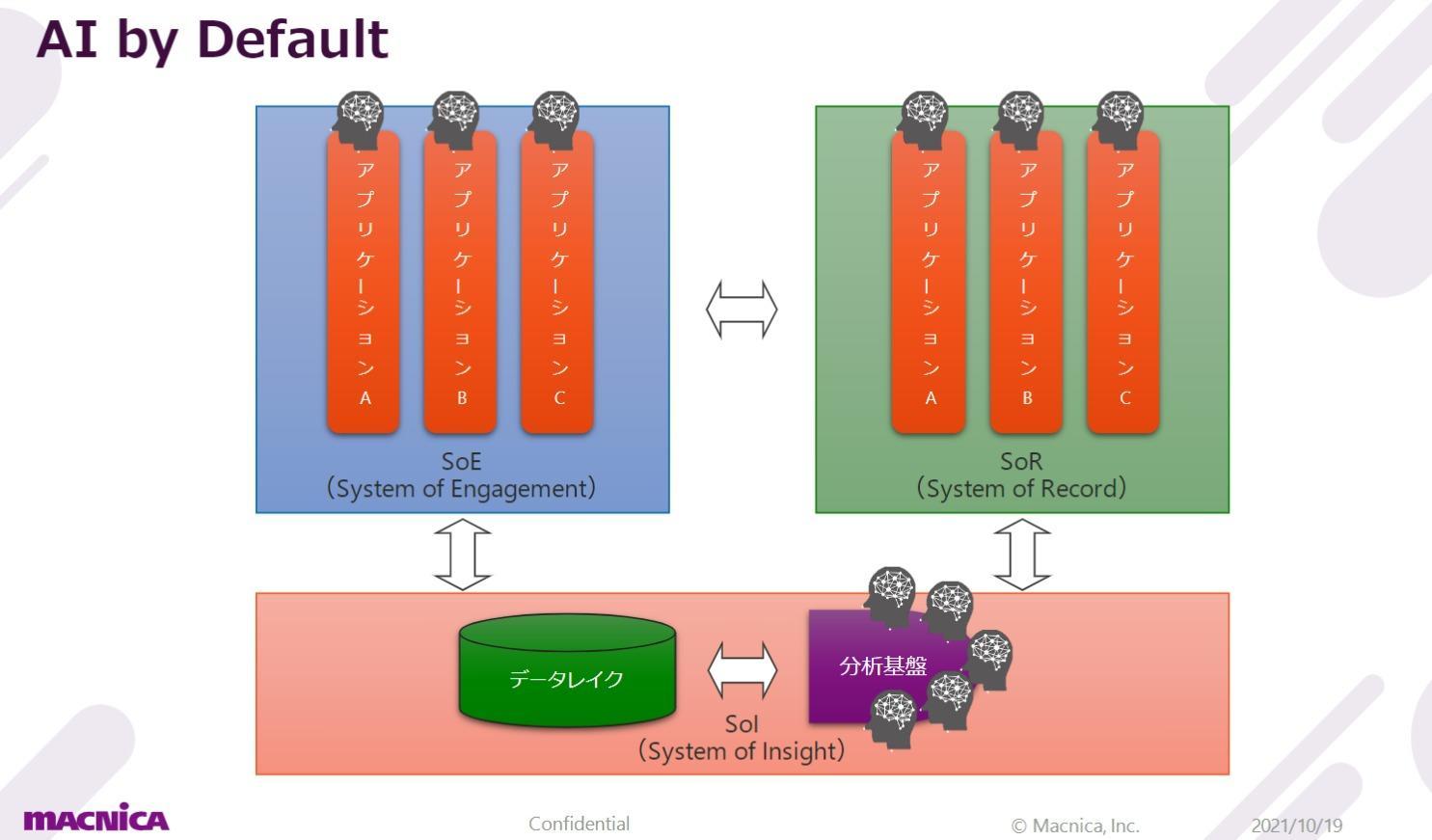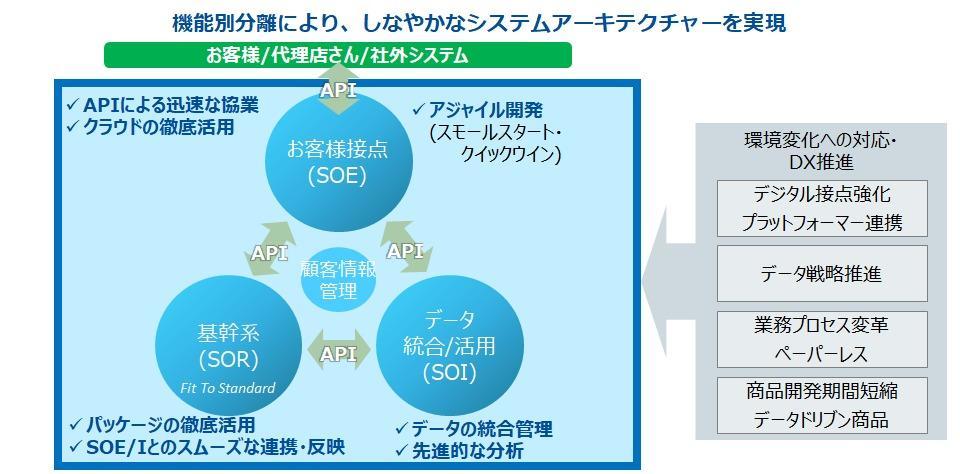
AI is already embedded in many of the electronic devices and devices around us. However, in Japan, we have to say that the implementation of AI in corporate systems is still in its infancy. In order to survive the global competition in the future, it is necessary to have a system and experience that can implement and utilize AI as a matter of course.
In this article, Mr. Murano from Tokio Marine & Nichido Fire Insurance Co., Ltd. Co., Ltd. will talk about the vision of AI implementation in 5 to 10 years, the missing pieces that companies must acquire to achieve that vision, and how to acquire them. .

Mr. Murano (left) of Tokio Marine & Nichido Fire Insurance Co., Ltd. Co., Ltd. and Yoshii of Macnica
The Tokio Marine Holdings, Inc. consists of several companies, including Tokio Tokio Marine & Nichido Fire Insurance Co., Ltd. (Tokio Marine & Nichido) and Anshin Life Insurance. We are developing our business mainly in insurance around the world, and the breakdown is half in Japan and half overseas. Mr. Murano concurrently serves as General Manager of the IT Planning Department of Tokio Marine & Nichido and General Manager of the Digital Innovation Headquarters of Tokio Marine & Nichido Systems, which was established as an IT subsidiary, and is in charge of DX for the Tokio Marine Holdings, Inc..
Tokio Marine dR Co., Ltd. will start on July 1, 2021. We collect "data", use "digital" methods, and explore the provision of various services while thinking "design". Mr. Murano is also a senior chief researcher in the Data Strategy Office of the Corporate Planning Department, which is the organization that implements this.
■ Towards a world where AI is embedded in everyday life
Everyone is probably aware that AI is already embedded in things like washing machines, vacuum cleaners, and air conditioners. While our lives are surrounded by AI, I think that the implementation of AI in corporate systems is still limited to only a few. Macnica is also advancing its AI business. There are many customers who are making progress in implementing it, but I have a strong impression that implementation is still limited to local areas.
However, Mr. Murano says, "If you look at AI from a long-term perspective of 5 or 10 years, the time will come when AI will be widely implemented in corporate systems." Otherwise, I believe that Japanese companies will not be able to maintain their global competitiveness. With awareness of these issues, we will discuss and look toward an era in which AI is used as a matter of course.

■ What the system should look like in 5 to 10 years

Tokio Marine & Nichido's business is still heavily embedded with AI. For example, we have created a model such as automobile insurance that utilizes drive recorders to support safe driving. In the event of an accident, we provide services to customers using AI-based judgments. In addition, AI is also making significant inroads into internal operations.
Mr. Murano says, "If you think about the span of 5 to 10 years, it will change at a tremendous speed." In the past, there were many things that AI took over the work that was done by humans, but in the future, services that can only be done by AI will appear one after another. We assume that the business of insurance companies will advance on the premise of such changes caused by AI.
The point we keep in mind when actually promoting AI utilization is that the merits of the application will determine whether AI will be used. Data is necessary to establish AI, and data is collected to create a model. However, no matter how good a model is, if it is not implemented in a high-quality application, it will be a waste of treasure. In other words, the utility value of the AI is determined by the quality of the application. To provide a good model, you need a good application.
Also, no matter how good the AI or application you create is, it will start to become obsolete the moment it is created. As AI learns on its own, its accuracy may improve or worsen. In other words, by repeating correct learning and improving services, sustainable AI can be maintained.
In order to actually maintain sustainable AI, it is important not only to have excellent data scientists, but also to understand and organize data. We also need people with the necessary engineering roles to manage projects, and a reliable infrastructure that allows us to concentrate on our work without worrying about security.
It is said to be both offensive and defensive DX, but Tokio Marine & Nichido is streamlining internal operations one after another as defensive DX. By using AI instead of humans, it will be possible to directly process various complicated data. This is the defensive AI.
On the other hand, aggressive DX means delivering new value to customers. The basic purpose of insurance is to pay for damages to those who have been involved in an accident. This is aggressive DX, and the idea is to predict how to prevent accidents while analyzing huge amounts of data with AI.
As a strategy, there are offense and defense, but in reality, similar data and models are used, and it is only a matter of whether the application is in charge of the offensive side or the defensive side. The mechanism itself can be said to be the same for offense and defense. What is important is managing and monitoring who is using the vast amount of data, for what purpose, and how. Only when it is possible to check whether the created AI is not obsolete and whether it is sustainable can we say that it is a reliable AI.
■ What is the missing piece for AI implementation?
“In order to implement AI and DX, we have to change the company culture,” Mr. Murano points out. DX and AI are not always successful. It is important to have a culture of taking on challenges and having customers accept those challenges. Tokio Marine & Nichido has begun efforts to make “Agile” a culture not only for systems, but also for creating services.
In addition to IT departments, end users are already using AI. In that sense, we must consider how to use AI on the front lines of business. In other words, we will enter an era in which AI will enter even into end-user computing.
Non-life insurance has a similar role to AI in collecting data and making predictions, so the affinity is quite high. The non-life insurance business is about catching up on risks in the world as quickly as possible. Furthermore, the world will continue to change. Originally, it was insurance for ships, but now half of the insurance is for automobiles. It may turn out to be different. Mr. Murano points out that AI will be used in such a trend.
As the image of "AI is scary" suggests, it is true that the use of AI in delicate areas such as assessments that promote engagement and accident prevention is challenging. It will need to be delivered as a sustainable service with careful monitoring. Rather, it can be said that it is easier to accept the role as a service that further enhances the existing convenience.
“We will create one company within the group called Tokio Marine dR Co., Ltd., and collect data from various sources, not limited to insurance companies,” says Mr. Murano. Based on this, we believe that continuing to deliver a more convenient and safe environment will lead to trust as a company.
■ Utilization of overseas AI vendors and AI technology
Tokio Marine & Nichido has already partnered with overseas startups to utilize various models and implement services using APIs. In particular, we have incorporated AI from overseas into the process of dealing with accidents. Since the range of various data will expand in the future, we have to think in two directions. One is to acquire the ability to analyze data in-house, and the other is to utilize it outside the company.
Tokio Marine Holdings, Inc. is developing an in-house data scientist development program called "Data Science Hill Climb." The trained scientists will create models in-house and promote the use of data in each department.
In the case of external utilization, it is assumed that in-house resources alone are not perfect for understanding, processing, and utilizing all kinds of data. We are currently building a secure infrastructure to provide a secure analytics environment and have it processed by outside talent. We believe that AI adaptation will advance by advancing these two as two wheels.
Currently, Tokio Marine & Nichido utilizes overseas models and systems. Through API, we utilize AI born and growing overseas. This is the first step in overseas utilization, and progress is being made in several fields. As the second step, we will solve problems such as human resources and data removal, and create a situation where external human resources can demonstrate their abilities in the same way as in-house scientists.
We believe that new AI can be implemented through these efforts. In addition, we have entered an era in which there is almost no meaning in the field of data with only one company. We can only proceed with the help of many companies, including the utilization of human resources and the integration of infrastructure. Mr. Murano says, "We will openly prepare a system for DX."
■Role of Macnica
Even for Macnica, it is difficult to cover the needs with domestic resources alone, so utilizing global human resources is a major theme. As an AI vendor, Macnica believes that its mission is to solve the problem of data distribution and enable domestic companies to utilize overseas data scientists who have many resources.
Creating sustainable AI is a big theme. In terms of technology and engagement with customers, unless we consider the system and human resources, we will not be able to create and maintain sustainable AI. It is possible to create sustainable AI by increasing competitiveness and solving problems, not only offensively but also defensively.
▼ Business problem-solving AI service that utilizes the data science resources of 25,000 people worldwide
Click here for details
